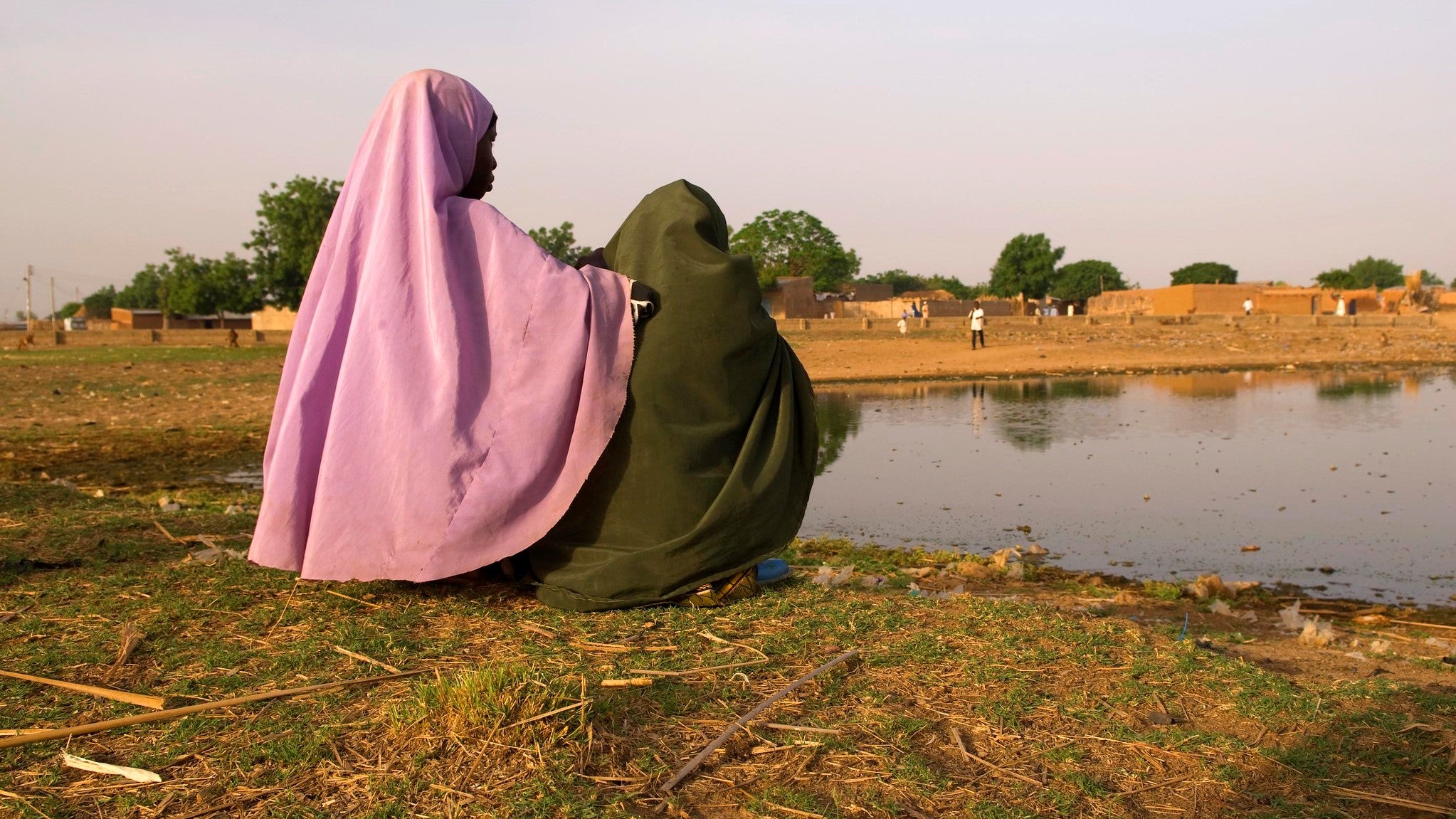 Two women in Nigeria
Two women in Nigeria
The devastating consequences of rape in war and other forms of conflict-related, gender-based violence (GBV,) including child sexual abuse, have been documented extensively. Gender-based violence during conflict varies in terms of prevalence and perpetrator, but women and girls bear the brunt. Although women are less likely to die in armed conflict compared to men, those who survive are vulnerable in other ways. In addition to the existing hardships they face during peacetime, during conflict women can experience reduced empowerment, poverty, and forced displacement.
According to the UNHCR, the number of Forcibly Displaced Persons (FDPs) has increased over 50% in the past decade. Research on how armed conflict affects the most vulnerable— who ultimately may be displaced— is important to better understand the vulnerabilities that they face. This understanding helps to design programs and policies that will work for both FDPs and their hosts.
In 2018, I was part of a research team that looked specifically at data focused on the relationship between armed conflict and physical and sexual violence against women in Nigeria before and during the Boko Haram insurgency that began in 2009. Our team— composed of women who are passionate about gender-related development challenges and gender equality— set out to answer what made women’s experiences of violence in times of armed conflict different from their peacetime experiences, with the caveat that advocating for women’s rights did not in any way diminish the challenges that men face during conflict.
We focused on intimate partner violence (IPV). Intimate partner violence is the most common form of violence against women in both conflict and non-conflict settings. Yet it usually goes underreported and receives less attention than sexual violence perpetrated by armed forces. IPV causes physical and emotional trauma that affects women’s physical and mental health outcomes throughout their lives. It is associated with loss of income and negatively impacts child development. IPV also perpetuates generational violence, as witnessing it as a child or experiencing violence may increase the likelihood of becoming an aggressor or a victim during adulthood. IPV is a barrier to increasing gender equality and moving people out of poverty.
Our study, The Effect of Armed Conflict on Intimate Partner Violence: Evidence from the Boko Haram Insurgency in Nigeria, used data from the 2008 and 2013 Domestic Violence module of the Nigerian Demographic and Health Survey to examine the relationship between armed conflict and IPV in Boko Haram settings. The results from the study are as follows:
- The Boko Haram (BH) insurgency increased the risk of women’s experience of IPV by 4 percentage points. Finding an association between the BH insurgency and higher IPV risk is noteworthy because trend analysis revealed that IPV rates in the BH-affected areas remained unchanged from the period before the BH insurgency to the period during the BH insurgency. However, IPV rates declined by 5 percentage points in non-BH affected areas. Therefore, the finding of an increased probability of women’s experience of physical or sexual IPV by about 4 percentage points implies that conflict has stopped progress towards the reduction of IPV that could otherwise have been achieved.
- The Boko Haram insurgency increased the probability of women’s experience of controlling behavior from husbands/partners by about 14 percentage points and decreased the probability of women’s autonomy in household decision-making by around 22 percentage points. Increased women’s agency is associated with reduced risk of experiencing controlling behavior from a male partner which suggests that promoting women’s economic opportunities in conflict settings might have positive spillover effects on behavioral norms.
IPV is a violation of women’s and girl’s human rights, a manifestation of gender inequality, and it constrains and compromises human development. IPV response and prevention is therefore integral to the success of humanitarian and development policies and programs in conflict settings.
Ultimately, everyone suffers in situations of armed conflict. But to mitigate the gender-differentiated effects of armed conflict, it is important to depend on data-driven evidence to develop programs that will address and change the way we deal with harmful gender norms and behaviors at an individual and community level. By addressing IPV and gender inequality we can help countries to continue their path of sustainable economic development. This is good for everyone.
This work is part of the program “Building the Evidence on Protracted Forced Displacement: A Multi-Stakeholder Partnership" funded by UK aid from the United Kingdom's Department for International Development (DFID).


Join the Conversation